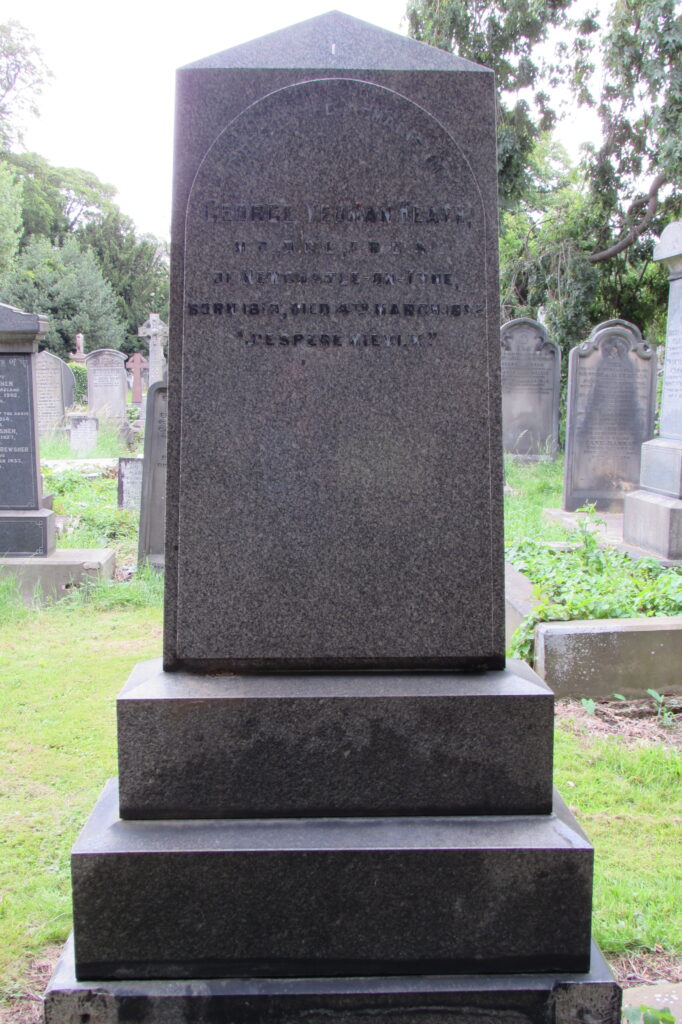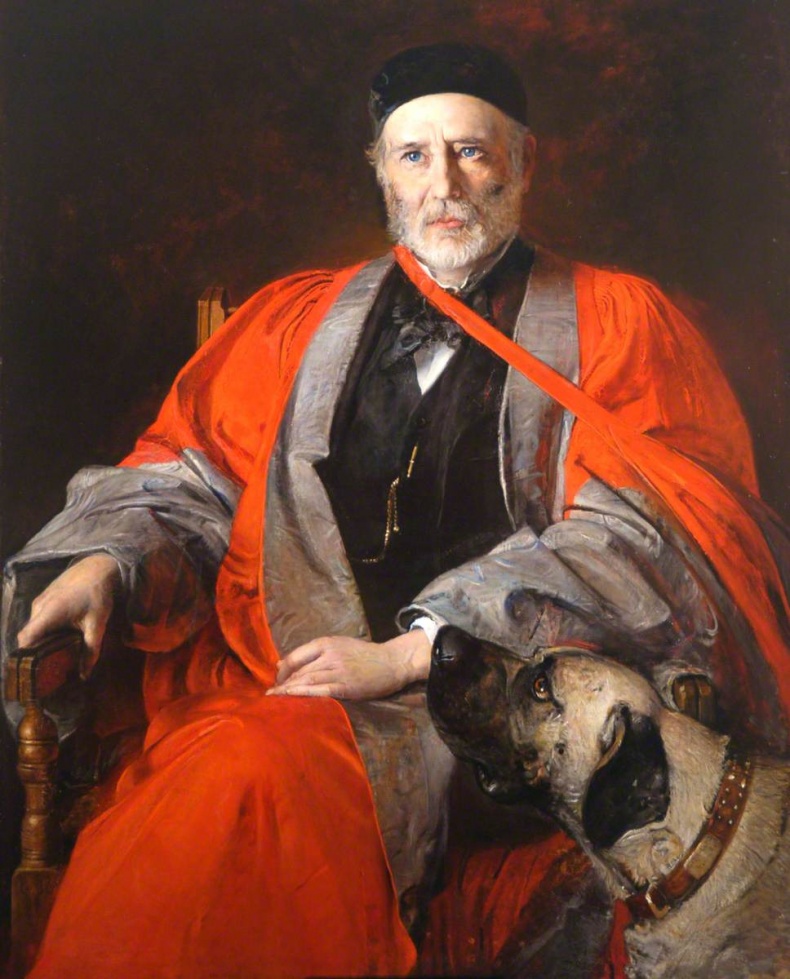PROFESSOR OF SURGERY, NEWCASTLE MEDICAL SCHOOL
Situated in the Consecrated/West Section of Jesmond Old Cemetery.

On Professor Heath’s monument are the words, ‘J’espere mieulx’, which, roughly, translates into ‘I hope for better’.

Photo Credit: Newcastle University
The British Medical Journal’s obituary for Dr. Heath reads as follows:
“Dr. Heath was born at Westoe, South Shields, in 1820, his father being a well known shipowner. He began his medical career as apprentice with his elder brother Henry, but subsequently studied in the Newcastle College, in University College, London and in Paris. He early gave promise and was House-Surgeon to Liston. In 1843 he graduated M.E. Lond., and in the same year became M.R.C.S. In 1886, the honorary F.R.C.S. was conferred upon him. The University of Durham also conferred upon him its honorary D.C.L. In 1854, Dr. Heath was elected surgeon to the Newcastle Infirmary, which post he held until 1880, when, having reached the age limit, he resigned, and was elected consulting surgeon.
At the meeting of the British Medical Association in Newcastle in 1870, Dr. Heath delivered the address in surgery, which was, and is still, considered one of the ablest delivered to the Association. Dr. Heath took a very prominent part in the foundation of the Newcastle Medical School. He joined its staff in the session 1845-46, lecturing on surgery: in 1846-47, he lectured on anatomy, but in 1847-48 he again returned to surgery, and has lectured on this subject ever since. A close history of the professional life of Dr. Heath would really be a history of the Newcastle Medical School, to the interests of which he was intensely devoted. In 1874, he was elected President of the College on the death of Dr. Charlton, and also representative in the General Medical Council.
Dr. Heath devoted himself entirely to surgery, and his fame and success as an operator extended far and wide over the north of England; indeed, it may almost be said that for many years he was the leading surgeon in the north. He was a bold and skilful operator, and had a brilliant record in the operation of lateral lithotomy, in which he particularly excelled.
His position as Professor of Surgery in the University will be difficult to fill. Of late, owing to advancing years, Dr. Heath has not been seen often at the meetings of societies, but whenever he came to show patient or specimen, he always received the warmest welcome, so popular was he amongst his professional brethren. So far as we are able to ascertain, beyond publishing cases in the medical papers, Dr. Heath never wrote anything, a fact much regretted, because he had unusual opportunities of observing surgical work and progress, and his lectures, which embodied his experience, were models of what great surgical lectures should be.
Dr. Heath had been ailing for some time before his death from some obscure hepatic condition. He was attended to by Dr. Gibb, but was also seen by most of his old colleagues. He was a man of many parts, and rarely took anything in hand without carrying it out to a fruitful termination. His name will long be remembered in the north as one of the brightest ornaments of his profession”
Indeed, Dr. Heath’s name is still remembered today in the form of The Heath Awards, an annual prize awarded to outstanding student nurses from Northumbria University, who work in the Newcastle Hospitals NHS Foundation Trust.